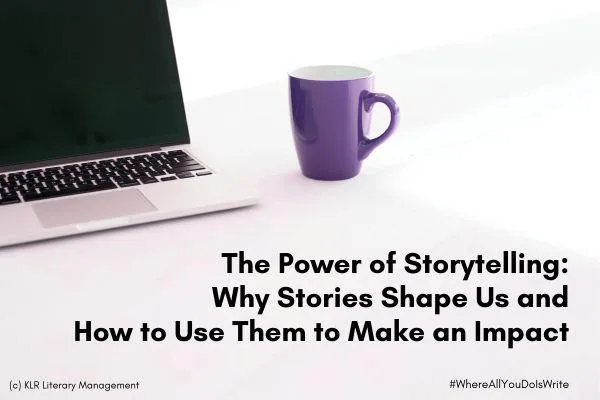Random THoughts
You never know what I might say...

The Power of Storytelling: Why Stories Shape Us and How to Use Them to Make an Impact
It’s National Storytelling Week, and while this week celebrates the power of stories, the truth is—stories have been the foundation of human connection for as long as we’ve existed. Before we had written language, we painted stories on cave walls. Before we had the internet, we gathered around fires, passing down wisdom, lessons, and history through spoken word. Even now, in our digital age, storytelling remains the single most powerful tool for communication—whether in books, films, marketing, or everyday conversation.
Since the dawn of civilization, storytelling has been our way of passing down knowledge, shaping our beliefs, and making sense of the world. And in today’s fast-paced, digital-driven era, storytelling remains the most powerful way to connect, inspire, and influence.
I teach The Power of Storytelling in Marketing because whether you’re an author, an entrepreneur, or a brand, the key to standing out isn’t just what you say—it’s how you tell your story. Science proves it. History confirms it. And in today’s world, it’s more critical than ever.
The Science of Storytelling: Why Our Brains Are Wired for Stories
Ever wonder why some stories stay with us forever? Why we can recall the plot of a book we read 10 years ago but struggle to remember what we had for lunch yesterday?
The answer lies in neuroscience.
Stories activate multiple areas of the brain, including those responsible for emotion, sensory processing, and memory formation. When we hear a compelling narrative, we don’t just process it—we experience it.
Neuroscientists have found that storytelling releases oxytocin, the chemical linked to trust and empathy. This is why we feel deeply connected to characters in books or why we’re moved by a powerful brand story.
Stories make information 22 times more memorable than facts alone. That’s why marketing filled with stats often fails to stick—but a well-told story lingers.
Our brains crave cause-and-effect relationships—a key feature of storytelling. When we hear a structured story with a beginning, middle, and end, our brains work to find meaning, making us more engaged and emotionally invested.
This is why storytelling isn’t just entertainment—it’s a tool for influence, connection, and action. And that’s been true since the beginning of time.
The History of Storytelling: How It Has Shaped Humanity
Long before books, before the internet, before written language—there were stories.
The cave paintings of Lascaux, dating back over 17,000 years, depict animals and hunting scenes, capturing narratives that early humans passed down through generations. These were more than just pictures—they were messages, a way to teach, warn, and inspire.
Across cultures, storytelling has been the foundation of societies:
Oral traditions in Indigenous cultures ensured that history, morals, and wisdom survived across generations.
The Epic of Gilgamesh, written over 4,000 years ago, is one of the earliest recorded stories, showing that the need to document and share experiences is timeless.
Religious texts, folktales, and mythology have long used storytelling to explain the unexplainable, guide human behavior, and build cultural identity.
Fast forward to today, and storytelling is everywhere—books, podcasts, movies, marketing campaigns, social media. The medium may change, but the purpose remains the same: stories create meaning, foster connection, and make information unforgettable.
Why Storytelling is the Most Powerful Marketing Tool Today
Here’s the thing: people don’t connect with products. They connect with stories.
This is why I created my Power of Storytelling in Marketing talk and workbook—because whether you’re an author trying to build your readership or a business trying to create loyal customers, storytelling is what makes people care.
Let’s break it down:
🔹 Storytelling creates emotion, and emotion drives action. Think about brands like Apple or Nike. They don’t just sell products—they tell stories. Apple isn’t just about technology; it’s about creativity and innovation. Nike isn’t just about shoes; it’s about determination and greatness.
🔹 Stories build trust and authenticity. In a world overflowing with information, people tune out sales pitches but lean in for genuine stories. Whether it’s an author sharing their writing journey or a brand telling the story behind their mission, authenticity wins every time.
🔹 Stories simplify complex ideas. If you’re an author marketing your book, a business selling a service, or a speaker trying to connect with an audience, storytelling transforms dry facts into engaging narratives that people understand and remember.
In marketing, facts tell, but stories sell. And the best part?
No matter how your story is told, it needs to be told.
Your Story Matters—How Will You Tell It?
Storytelling isn’t just for authors, filmmakers, or advertisers. Everyone has a story.
Whether you’re a writer trying to connect with readers, an entrepreneur building a brand, or simply someone who wants to share your message with the world, your story has power.
So, as we celebrate National Storytelling Week, I challenge you to embrace it. Write it. Speak it. Share it.
Because stories don’t just entertain—they shape the way we see the world. And your story just might be the one that changes everything.
Are you ready to harness the power of storytelling?
If you’re looking for ways to use storytelling in your book marketing or business, check out my Power of Storytelling in Marketing workbook. It’s designed to help you craft a compelling narrative that resonates with your audience and drives real results.
© Copyright 2025. KLR Literary Management. All rights reserved. | Privacy Policy | Terms of Use

